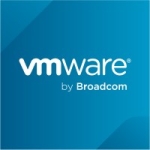The most valuable feature is supposed to be speed. I like the consolidation with the memory, the SSD and the InfiniBand, and the algorithms that they use internally to take different paths through for the database traffic. All of those features are why we went with it.
We've just started to convert over and the performance out of it was not as much as we had expected. We're seeing only, probably, one-third faster than where we were at. I don't know if we'll get the benefit that we had anticipated out of it.
I think their platinum support needs to be improved. It's very difficult after you've got the product in-house. They’ve got great service up until you get the product. Then, you get the product, and trying to find someone to help you with configuration or setup, or even just opening up an SR, was not there.
With patching, it takes 6-8 weeks to get it onto their schedule, in order to get something patched. Then, it's rush, rush, rush at the very end. It's a big mystery as to what exactly are they doing. That's the biggest problem that we've had.
We have not had any down time. We've run into bugs, which we had not anticipated. When we upgraded software, depending on the version, if you're not with the current patch release, you have huge problems. You can't even run. We can't even run our application right now because we ran into a patch problem.
For as far as we've gotten with it, it has scaled to our needs; so far so good.
Before choosing this product, I did not evaluate other options. This was a CIO decision and we went with Exadata.
You want to get everything set up before it comes in the door. While you still have that sales support with you, you want to get all of your additional support, because you have to be added in for the platinum support area. Get all of that set up before you get your product in.
It's not as good as we expected, but it's definitely better than what I've seen with other companies.















